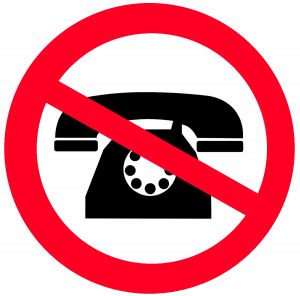 Unfortunately we all need to be vigilant when it comes to finding a work from home job. While there are very legitimate companies that offer telecommute and remote opportunities, there are also many work at home scams out there as well.
Unfortunately we all need to be vigilant when it comes to finding a work from home job. While there are very legitimate companies that offer telecommute and remote opportunities, there are also many work at home scams out there as well.
It can be devastating financially and emotionally to believe you are finally finding that perfect at home job that will help pay some bills and such, just to discover that there was no real job–just someone out to get some money from you instead. The Better Business Bureau encourages moms and others looking to work from home to watch for red flags that an opportunity is actually a just a scam–here are a few tips to keep in mind:
The employer offers the opportunity to become rich without leaving home
If it sounds too good to be true, chances are it is. Most at home jobs will not make you rich, and any company proclaiming it will is likely not legitimate. Many scammers try to take advantage of senior citizens, stay-at-home moms, students and others looking to make money conveniently from home. Always use extreme caution when considering a work-at-home offer and always research the company with their state’s Better Business Bureau.
The employer asks for money upfront
A legitimate company will not ask for upfront fees. If a potential employer asks for fees for things like background checks, training for jobs that don’t exist, or for “kits” that are required to perform the work, be wary. Always research the job thoroughly before spending any money. Also be wary of job placement companies that ask for large upfront fees to find you a job.
The employer requires a check of your credit report
Be very vigilant for this red flag: After posting their resumes online or responding to online job listings, many job hunters received what they thought was good news: an e-mail from an interested employer. In order to be considered for the job, the applicant has to provide private information for a credit check; this is often an attempt to get the job hunter to divulge Information that can be used for identity theft.
The employer is quick to ask for personal information such as Social Security or bank account numbers
When a potential employer asks for personal information online in order to fill out the necessary paperwork, be suspicious. Regardless of the reason, a job applicant should never give out his or her Social Security or bank account numbers over the phone or email.
The job requires you to wire money through Western Union or MoneyGram or receive and forward suspicious goods
Many phony jobs require the employee to cash a check sent by the company through the mail and then wire a portion of the money on to another entity. Reasons given for this requirement vary from scam to scam. Whatever the reason though, the check might clear the employee’s bank account but will eventually turn out to be a fake and the employee is out the money he or she wired back to the scammers. BBB also warns against receiving and mailing suspicious goods—such as electronics or luxury items—overseas.
As always, the best advice for job seekers is to research the company or business they are interested in with the Better Business Bureau.

